Inner Nature: Gender — sex made visible
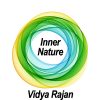
By Vidya Rajan, Columnist, The Times
Charles Darwin concluded his seminal “Origin of Species by Means of Natural Selection” with this immortal paragraph: “Thus, from the war of nature, from famine and death, the most exalted object which we are capable of conceiving, namely, the production of the higher animals, directly follows. There is grandeur in this view of life, with its several powers,...
InnerNature: Sex — The key to diversity
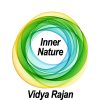
By Vidya Rajan, Columnist, The Times
In his book “Evolution: The Triumph of an Idea,” Carl Zimmer concedes: “Sex is not only unnecessary, but it ought to be a recipe for evolutionary disaster. For one thing, it is an inefficient way to reproduce…And sex carries other costs as well…By all rights, any group of animals that evolves sexual reproduction should be promptly outcompeted by nonsexual...
Inner Nature: Animal Development: Evolution of Body Plans
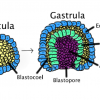
By Vidya Rajan, Columnist, The Times
To observe a graceful animal in motion is a beautiful thing.
This is even more so for those justly celebrated for their mastery of movement, such as a hummingbird hovering over a flower, or a human thundering to a heart-stopping sub-10 second 100 meter Olympic run. The seeming perfection of form is an illusion – all forms are in development, with each generation...
Inner Nature: The science of reproduction
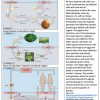
By Vidya Rajan, Columnist, The Times
Reproduction is the process by which cells make new cells and organisms make babies. No surprises there. But underlying the banality of that observation is a profound question that had thinkers from Aristotle to Darwin scratching their heads: How does reproduction work? How is it that cats have baby cats nearly, but not exactly, like themselves? And if cats...
Inner Nature: Immunity — Autosurveillance
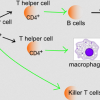
By Vidya Rajan, Columnist, The Times
The immune system is the mechanism that protects and defends the body. Although its main purpose is defense against attack, the immune system is also a barrier, border patrol, soldier, police, doctor, parent, and amazingly, a fortune-teller, all in one package. Not only that, it exists in every living organism from bacteria to plants to animals to protect against...
Inner Nature: Circulation — nutrients in, waste out
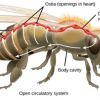
By Vidja Rajan, Columnist, The Times
The purpose of circulation is to bring nutrients to cells and remove wastes. Circulation is important for all organisms, including plants, fungi and bacteria; it’s no good to a cell if materials cannot get in and out efficiently. In single-celled organisms, which live suspended in an aqueous environment, the medium performs this function.
Sunday Punch: Shut down Mariner East II, for good

By Mike McGann, Editor, The Times
Would you allow a five-year-old to run amuck in your neighborhood with a grenade? I’d like to think not, as the odds of it ending well are pretty small.
So, allowing Sunoco/Energy Transfer Partners, a corporation who acts nearly as responsibly as a five-year-old, to continue building a pipeline across Chester County, near homes, schools and retirement communities...
Inner Nature: The Breath of Life

By Vidya Rajan, Columnist, The Times
Respiration is the technical term for the release of energy from food at the cellular level. On a colloquial level, it is used to describe the process of breathing. Here, I will discuss how the process of breathing using the respiratory system supports the intake of oxygen and removal of carbon dioxide, a waste product of respiration. I am going to focus narrowly...
Inner Nature: Digestion and food processing
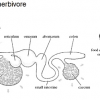
By Vidja Rajan, Columnist, The Times
The previous group of Inner Nature articles were loosely organized around how organisms sense the external environment using vision, sound, touch, taste and smell. What is most remarkable about this cluster of what appears to be completely different mechanisms is the profound underlying similarity. This similarity is due to the outcome of notionally different...
Inner Nature: That sense of smell
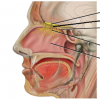
By Vidja Rajan, Columnist, The Times
When preparing a body for embalming, the Ancient Egyptians carefully entombed organs considered necessary for the afterlife with the body. The brain was considered dispensable and was pulled out of the skull with a hooked rod inserted through the nose (http://legacy.mos.org/quest/mummy.php). In this, the ancient Egyptians discovered something significant: it’s...



